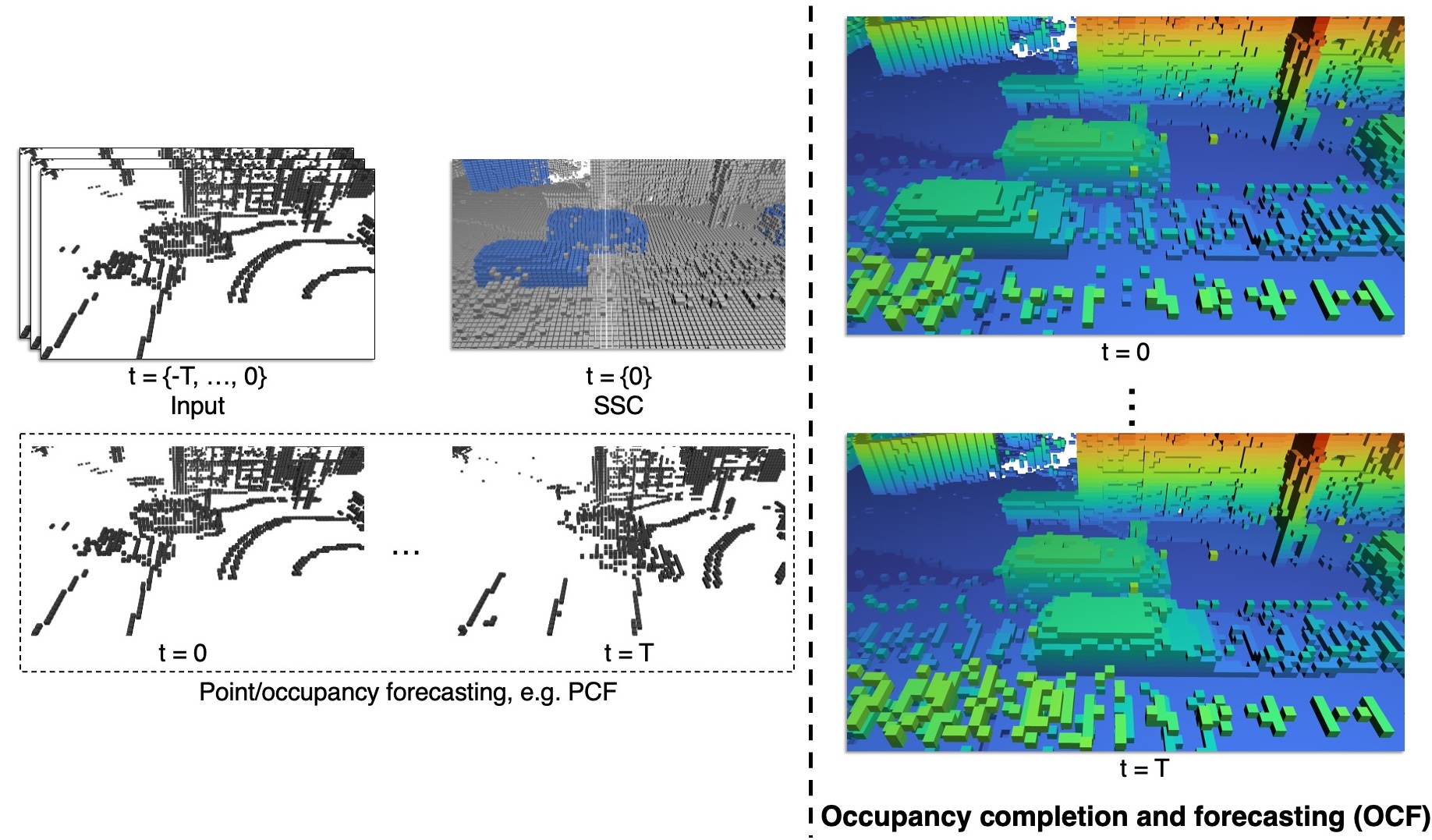Scene completion and forecasting are two popular perception problems
in research for mobile agents like autonomous vehicles. Existing approaches
treat the two problems in isolation, resulting in a separate perception of the two aspects.
In this paper, we introduce a novel LiDAR perception task of Occupancy Completion and Forecasting
(OCF) in the context of autonomous driving to unify these aspects into a cohesive framework.
This task requires new algorithms to address three challenges altogether:
(1) sparse-to-dense reconstruction, (2) partial-to-complete hallucination, and
(3) 3D-to-4D prediction.
To enable supervision and evaluation, we curate a large-scale dataset termed OCFBench from public
autonomous driving datasets. We analyze the performance of closely related existing baseline models
and our own ones on our dataset. We envision that this research will inspire and call for further
investigation in this evolving and crucial area of 4D perception.

